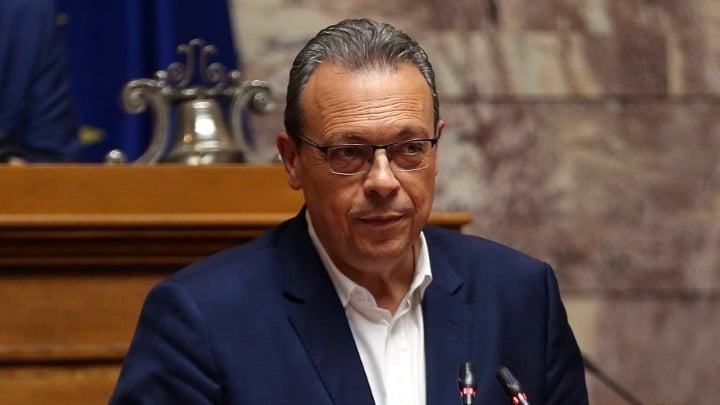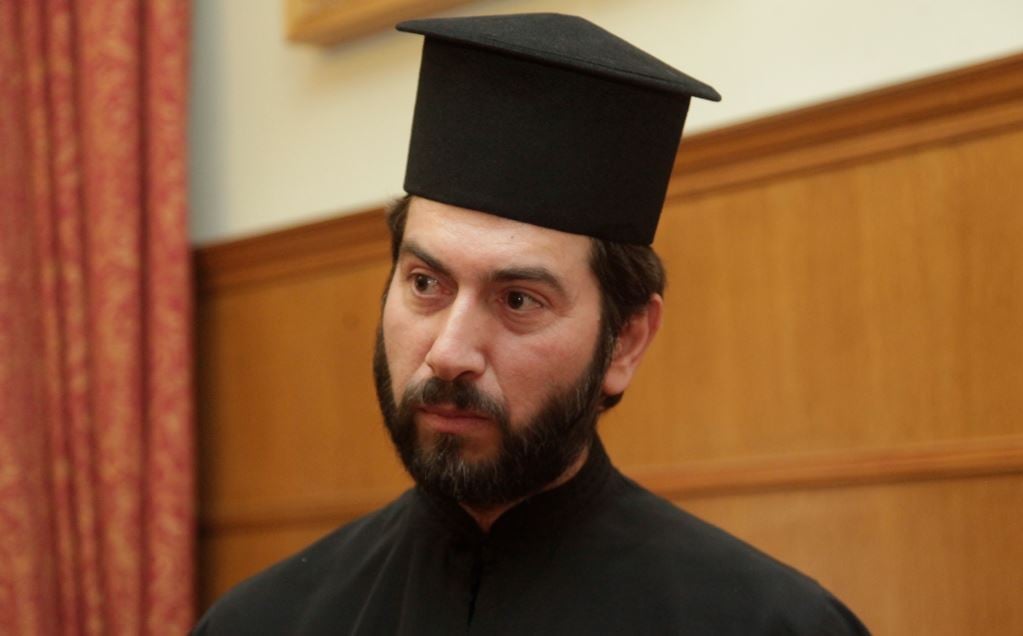Tsipras calls Farage monstrosity created by austerity
Greece’s main opposition leader distanced his group from other protest parties that made gains in the European elections, calling the U.K. Independence Party and the National Front in France “monstrosities.”

Greece’s main opposition leader distanced his group from other protest parties that made gains in the European elections, calling the U.K. Independence Party and the National Front in France “monstrosities.”
Greece’s main opposition leader distanced his group from other protest parties that made gains in the European elections, calling the U.K. Independence Party and the National Front in France “monstrosities.”
Alexis Tsipras, who rocked international markets when he emerged as the political force to counter now-Prime Minister Antonis Samaras in Greek elections two years ago, said on May 28 his Syriza party is “an oasis in this desert.”
“We are a pro-European force that wants to change Europe, not dismantle it,” Tsipras, 39, said in his first interview since winning Greece’s European elections on May 25. “Austerity has led to the creation of political monstrosities.”
Voters across Europe deserted the parties that held power during the economic crisis as unemployment across the 28-nation bloc increased to a record last year.
While UKIP leader Nigel Farage and France’s nationalist leader Marine Le Pen want to roll back European powers to protect the interests of the British and the French, Tsipras said his Syriza party is focused on transforming EU policy.
Syriza, a Greek acronym for Coalition of the Radical Left, got 26.6 percent in the election, compared with 22.7 percent for Samaras’s governing New Democracy party.
Tsipras, who was a member of the Greek Communist Party Youth in the 1980s and named his youngest son after Ernesto Che Guevara, said at his office in Athens Syriza would ally with Spain’s Podemos movement, which won five seats.
Socialist bloc
It may consider cooperating with the Socialists, the European Parliament’s second biggest group, if they are prepared to challenge the budget-cutting prescriptions laid down by German Chancellor Angela Merkel.
“We would be open to cooperation on the condition that they will return to their political roots, and stop accepting austerity as the only option,” he said. “Not if they remain under the spell of Angela Merkel’s hegemony.”
Tsipras is trying parlay his success in the European vote into more power on a national level.
He said he won’t feel bound by any agreement Samaras reaches with Greece’s creditors this year unless they take account of his demand for writedowns on the country’s 240 billion-euro ($327 billion) debt burden, even as he pledged not to jeopardize Greece’s membership of the euro.
Election call
“The current administration has no mandate to strike deals that will bind the country for years and decades to come without taking into account the result of last Sunday’s EU elections and without consulting the biggest party in Greece,” he said.
To resolve that tension, he said Samaras should call a snap election, because the result shows the governing coalition is out of sync with the electorate.
“Only elections will bring political stability in Greece,” he said.
While Greece is not scheduled to hold another national election until 2016, the choice of president next year could trigger a vote, unless Tsipras and Samaras come to agreement for a candidate. The president needs a super-majority of 180 in the 300-member parliament in Athens. Samaras currently has the backing of 152 lawmakers.
In the meantime, Tsipras is also demanding a say in the appointment of a new central bank governor when George A. Provopoulos’s term expires next month.
“If the government doesn’t consult with us, we will consider it an attempt to create a fait accompli against the public interest,” he said. “In that case, I’d like to remind you of what happened in Cyprus.”
Cypriot example
Cypriot central bank Governor Panicos Demetriades resigned last month citing personal reasons after a long-running feud with President Nicos Anastasiades. Tsipras declined to say whether he would support the renewal of Provopoulos’s term.
Beyond the choice of central bank chief, Tsipras is focused on the debt negotiations.
Euro area finance ministers said on May 5 they may discuss further debt relief later this year after Samaras met a target to deliver a budget surplus before interest payments. While the ministers ruled out the possibility of writedowns, Tsipras said Samaras should push to have part of the country’s debt forgiven by its creditors to allow the economy to recover.
“We want to find a one-off solution, which will be final and will give the Greek economy space to grow, in order to be able to repay part of this debt,” he said.
ολες οι ειδησεις
- Επιβεβαίωσε η NASA: Το αντικείμενο που έπεσε σε σπίτι στη Φλόριντα προέρχονταν από τον Διεθνή Διαστημικό Σταθμό
- Καιρός: Αλλαγή σκηνικού – Πτώση της θερμοκρασίας με μπόλικη δόση λασποβροχής
- ΤΣΣΚΑ Μόσχας: Ποιος Έλληνας προπονητής αναλαμβάνει την ρωσική ομάδα
- Χειροπέδες σε τέσσερις διαρρήκτες στη Θεσσαλονίκη – Έκλεβαν χρήματα και χρυσαφικά από σπίτια
Ακολουθήστε το Newpost.gr στο Google News και μάθετε πρώτοι όλες τις ειδήσεις
Δείτε όλες τις τελευταίες Ειδήσεις από την Ελλάδα και τον Κόσμο, στο Newpost.gr








